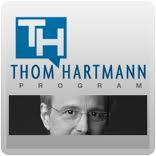 If you want to live longer, feel healthier, and save the world all at the same time, there’s only one thing you can do: go vegan.
If you want to live longer, feel healthier, and save the world all at the same time, there’s only one thing you can do: go vegan.
Don’t believe me? Just look at the facts. The most common cause of death in the United States right now is a heart attack, but if you stop eating meat, dairy, and eggs, your risk of a heart attack falls by 90, I repeat, 90 percent.
Meanwhile, people who eat animal products are around 3 times more at risk of developing cancer than people who’ve either gone totally vegan or seriously cut back on the amount of meat they eat.
Oh, and if that wasn’t reason enough to drop meat, dairy, and eggs from your diet, consider this: breast milk infected with pesticides is about 35 percent more common in moms who eat meat than it is in moms who don’t eat meat. But the health benefits of going vegan are almost secondary to all the good it does for the planet.
Vegans are often portrayed in the media as extremists, but when you consider the amazing amount of waste and destruction that goes into supporting our meat-heavy diet, it’s the carnivores that look extreme.
Not only does a meat-based diet require 3 times more fossil fuels than vegan diet, it also hoards resources that could be used to feed the tens of millions of people that go to bed hungry every night.
In fact, John Robbins, one of the world’s leading experts on vegan diets, estimates that we could feed almost 100 million people if Americans cut their meat consumption by as little as 10 percent.
Most experts have known about the benefits of going vegan for a while, but now, in what’s really a big time win for public health, the government is catching on. The Dietary Guidelines Advisory Committee (or DGAC), a federal panel that includes some of the America’s top nutritionists, has just released its annual diet guidelines report. And that report is as ringing an endorsement of an animal product-free diet as you’re going to get from the U.S. government.
Noting that the average American diet contains way too much meat and dairy, the NGAC report recommends that we start eating fewer animal products and more vegetables. And while a couple of different diets will get the job done, the NGAC says, the best diet, especially when it comes to protecting the planet, is a vegan one.
According to the panel’s report, “The organically grown vegan diet… had the lowest estimated impact on resources and ecosystem quality… [while] Beef was the single food with the greatest projected impact on the environment; other foods estimated to have high impact included cheese, milk, and seafood."
I’m glad the government’s finally coming around to something I realized decades ago. The last time I ate meat was when I was a teenager, and the decision to stop eating animal products was one of the best choices I ever made.
Of course, going vegan isn’t just about feeling better; it’s about recognizing the cold hard reality that the way we eat right now is literally killing us and the planet we live on. It’s time for all of us to face that reality and make some tough choices.
Totally abandoning meat might be too much for some people, but if we really want to save the planet and maybe ourselves in the process, we need to put down the cheeseburgers and pick up the veggie-burgers. It's as simple as that.
Put Down the Cheeseburger
By Thom Hartmann A...



